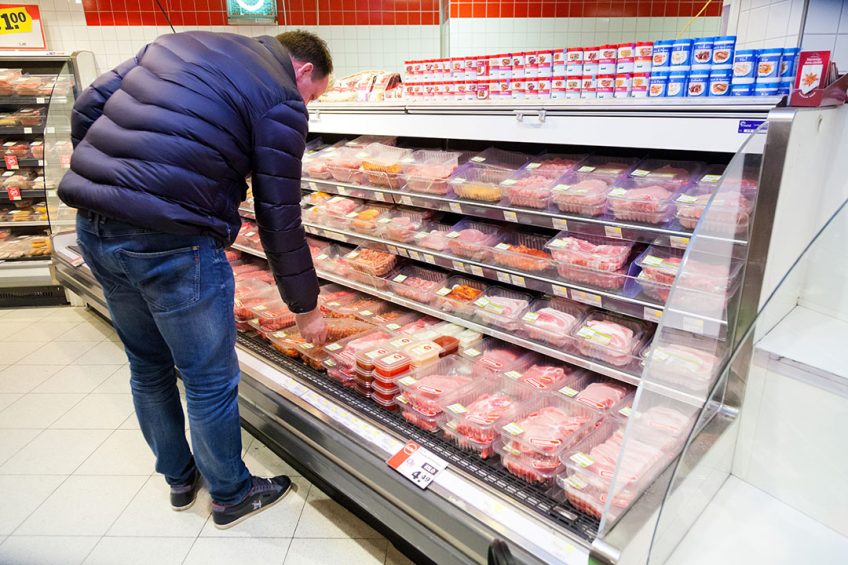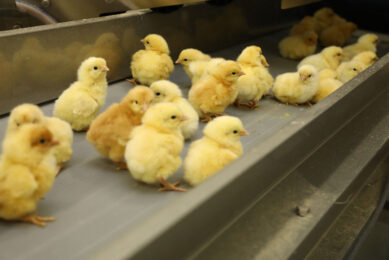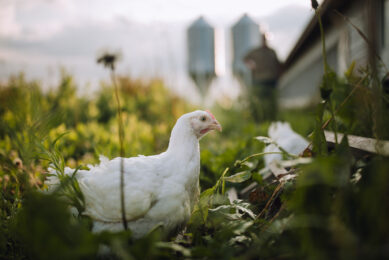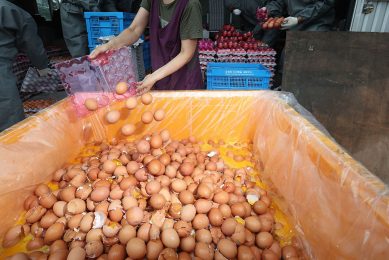UK stores criticised for selling white striping meat

Major retailers in the UK have been slammed for selling cuts of chicken with white striping disease.
The report, ”White Striping Disease in Supermarket Chicken” found that in comparison just 11% of samples of higher welfare chicken packets showed the disease, with the majority being very low grade. Vicky Bond, managing director at the Humane League UK, said it was urgent for supermarkets to take action: “There are clearly shocking levels of white striping disease throughout the UK retail industry. It is now more urgent than ever for supermarkets to move away from fast-growing breeds of chicken, which are not only the source of so many health and welfare issues for chickens, but also result in a much lower quality end product.”
White striping disease
The disease reduces nutritional value by increasing fat, and also making it harder for marinade to bind. It appears as thin white lines of fat running across the breast.
There are clearly shocking levels of white striping disease throughout the UK retail industry.”
Study of ‘own-brand’ supermarket chicken
The Humane League UK carried out the investigation by photographing and examining “standard” factory-farmed ranges of supermarket own-brand chicken which are the most commonly available choice. These were rated against a recognised scientific sale from “0 – none present” up to “3 – severe white striping present”.
The disease appeared to be present in
- 94% of Asda samples and
- 92% of Aldi and Lidl samples.
- Iceland and Morrisons were the only 2 retailers where more than 20% of samples were clear of white stripes.
Evaluation of meat from slow-growing broilers
It is believed that by growing chickens in a semi-intensive system and giving them more time to attain maturity, muscle abnormalities in slower growing chickens might be reduced.
Better Chicken Commitment
The Humane League UK is calling on retailers to adopt the Better Chicken Commitment (BCC), which includes the use of slower growing breeds. So far, Marks and Spencer and Waitrose have committed to the BCC but others have declined to commit to the scheme.
The British Retail Consortium said retailers expected their suppliers to meet all legal requirements and assurance schemes adding that customers had the choice to buy free-range and organic chicken. Tesco, which is not represented by the BRC, said its finest, organic and new RSPCA Assured Room to Roam ranges met or exceeded ever aim of the BCC.
The nutritional needs of slow-growing birds
Improvements in genetics, management and nutrition dramatically improved the speed at which today’s farmers can produce poultry meat.
The latest report follows a study released earlier this year by Scotland’s Rural College (SRUC) which said that 78% of fast-growing chickens were likely to have poor quality meat with white striping, whereas just 10% of slower growing birds were affected.
 Beheer
Beheer








 WP Admin
WP Admin  Bewerk bericht
Bewerk bericht